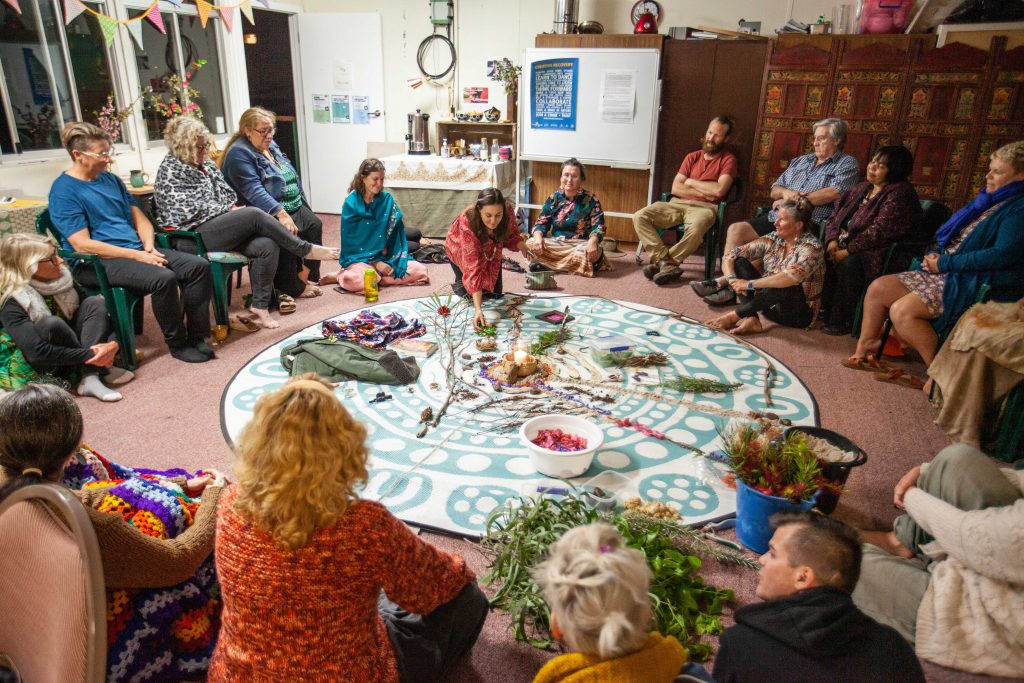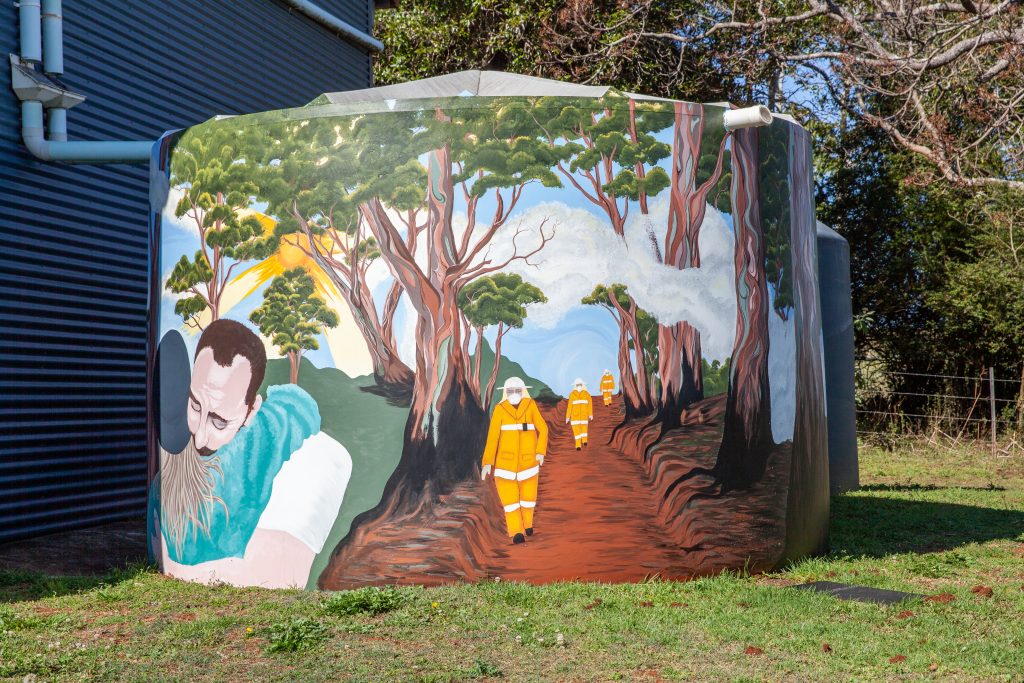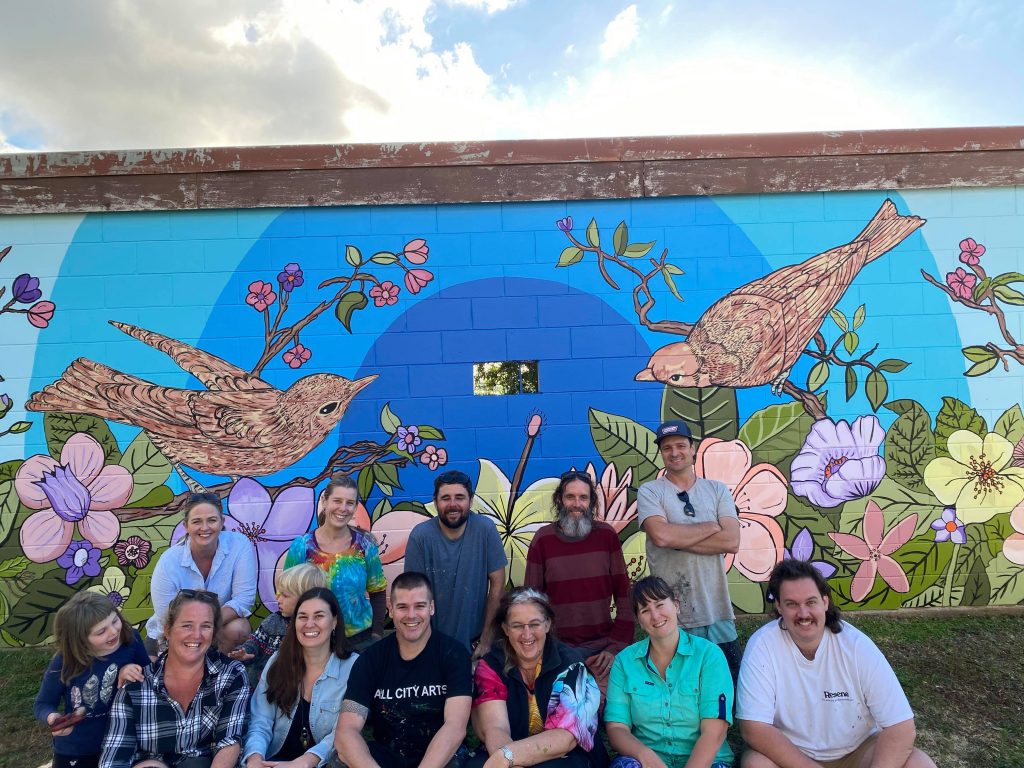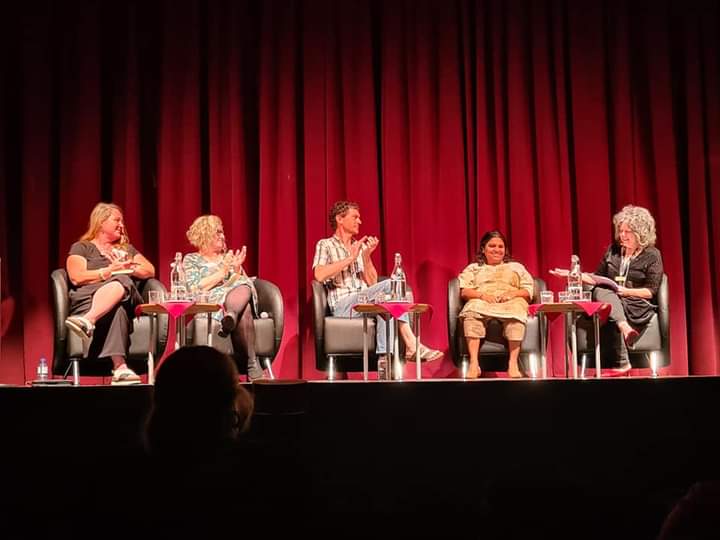Foundation for Rural & Regional Renewal (FRRR)
In Victoria’s Alpine Valley shire, Alpine Radio is a vital and much-loved way for the community to stay safe and connected. It’s run by Kiewa Valley Community Radio Association Inc, a not-for-profit community radio station located in Mount Beauty in north-east Victoria.
Alpine Radio broadcasts local information into the Kiewa and Ovens Valleys and Harrietville about events and activities, along with music programs and local interviews. It is also an official Emergency Services broadcaster for the region.
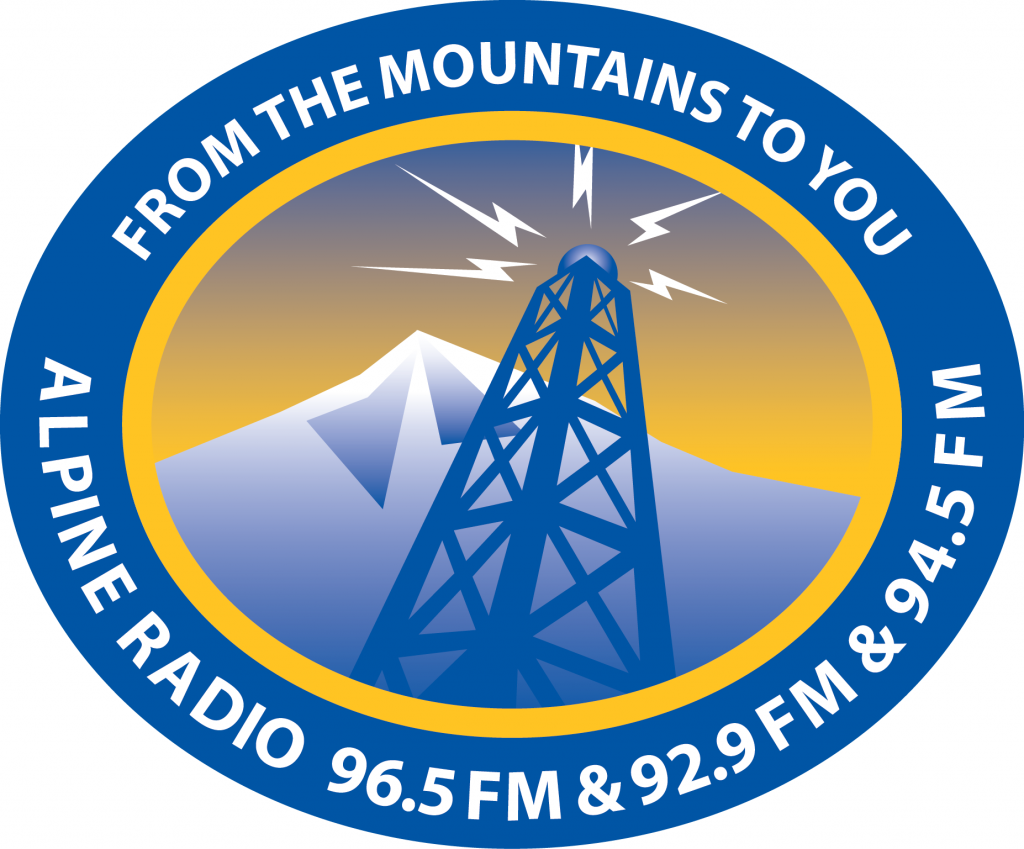
Like many of the organisations that responded to our 2021 Heartbeat of Rural Australia study, the station receives most of its funding from local businesses and benefactors. However, the downturn in tourism following the 2020 fires resulted in a loss of income by local businesses, which was further exacerbated by the pandemic. This meant that several of the station’s supporters stopped their contributions entirely or suspended their payments.
In a bid to regain sponsors and attract new ones, Alpine Radio used a $6,000 grant from the News Corp Bushfire Recovery Fund, managed by FRRR, to bring in external expertise. A Sponsorship and Marketing Manager was engaged part-time for six months to keep in touch with current sponsors during the lockdowns. If they couldn’t pay their sponsorship fees because of the downturn in income, the business continued to be mentioned on air (free of charge) or was suspended until the business could reopen. The radio station also contacted many of the local businesses that were not necessarily sponsors but were changing their business model to offer takeaway meals and drinks, and they broadcast these changes to the listening public for free.
This strategy created a lot of goodwill within the community and, as a result, Alpine Radio signed up several new sponsors once businesses were able to open up and start getting regular income again. Previous supporters also came back on board too.
The grant helped bring financial stability to the station, which in turn enabled them to continue to employ a paid station manager. This means that Alpine Radio can continue to deliver local communications, media and play a critical role during emergencies.
The station’s President, Nicholas Brown, said that the goodwill created across the Kiewa and Ovens Valleys is what they were most proud of.
In the last few years, bushfires, floods and other extreme weather events have become more common in parts of Australia. In South Australia, people living in metropolitan and remote, rural and regional areas have become more accustomed with these types of events hitting their communities. Preparation and planning is key to ensuring minimal damage to human life and infrastructure. But for people living with a disability preparedness can sometimes be tricky – especially if important messaging isn’t accessible.
As of 2015, there were nearly 200,000 people in South Australia living with deafness or hearing loss (2015 National Health Survey, ABS). In times of emergency when clear communication is vital, there is a large window for confusion when first responders are unable to communicate with residents in disaster-affected areas. To close this gap, Deaf Can:Do developed the Talking Hands for Frontline Responders project.
Using a $25,000 grant through the FRRR News Corp Bushfire Fund program, the aim of the project was to provide training to South Australian Country Fire Service (SA CFS) volunteers across the state to effectively communicate with the deaf and hard of hearing community by teaching them basic AUSLAN skills and other ways to communicate.
Unfortunately, COVID and an active fire season meant SA CFS had reduced capacity to help co-design the learning content. With permission from FRRR, Deaf Can:Do redirected a portion of funding to purchase a Learning Management System authoring tool. Staff were upskilled in the use of this tool, so that learning design and course builds could be completed internally. The tool allowed for the sharing of content and proposed course materials via a simple link that updated in real-time, which led to ease of communication around changes required, and ultimately supported tailoring content for the target audience. The co-design process greatly benefited from this. The course was finalised internally at Deaf Can:Do, and then exported into CFS’s own learning management system with their support.
During the consultation and content development period, the CFS identified that volunteers would benefit from communication skills and strategies training as well as Auslan language training, so the scope of content was broadened to include this identified need. CFS also provided feedback around specific needs of volunteers, English literacy considerations and accessibility to information.
As a result, the seven module course introduces learners to some simple Auslan that has been tailored to the needs of the CFS, and covers which skills and strategies are most appropriate for different community members, as well as some common mistakes to avoid. The training includes Auslan videos, interactive quizzes, interactive simulations and more to guide learners through the course, as well as links to further resources.
The e-learning course now features on the CFS’s learning management system, and is available to all volunteers across the service. The training, which can be completed at any time, provides basic but important skills that allow CFS volunteers to successfully communicate relevant and important information to the deaf and hard of hearing community. This successful project will have several positive impacts on South Australian communities in times of disasters. Volunteers can now confidently communicate to people living with hearing impairments, and it will also build relationships between these community groups and help spread useful information to other people. The program can also be rolled out to CFS groups across the country which will play a major role in disaster preparedness nationally.
Feedback was collected from the volunteers who participated via a survey link embedded in the course. The response was a strong “Very Useful”, while others felt that the practical advice like using a mobile phone to write was very helpful too.
For more inspiring stories like this, head to our FY 2021/22 Annual Review.
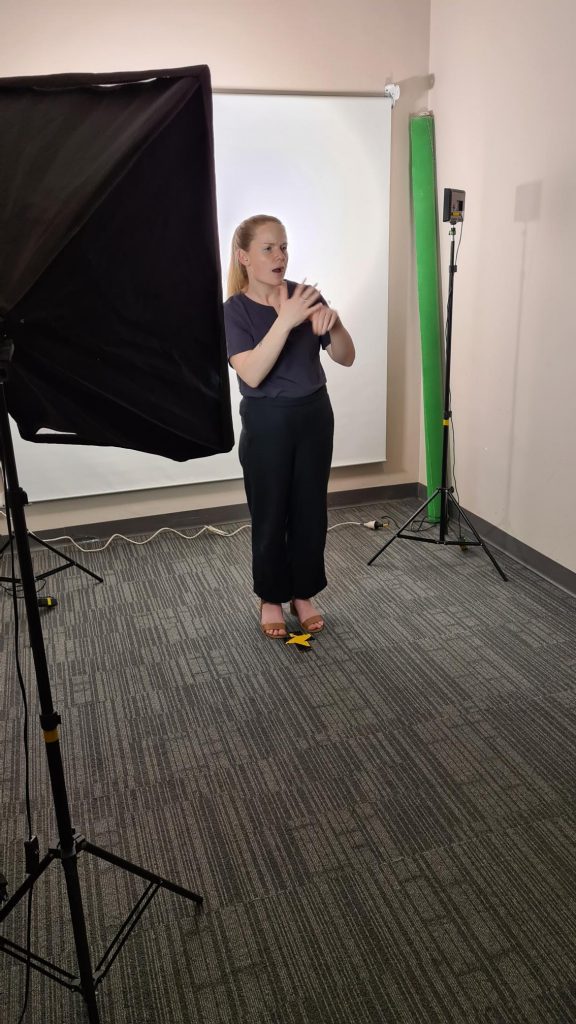
On Yugambeh Country
The Little Pocket Association is located in Beechmont, a quiet village nestled in the Scenic Rim in south east Queensland. They’re a community organisation that provides a safe and supportive platform for local families to connect with community and place. Because of their work, they were well positioned to assist with the recovery process in the wake of the 2019/20 Black Summer bushfires.
Through the News Corp Bushfire Fund program, FRRR helped to fund The Little Pocket Association’s initiative ‘Regeneration – Creative Bushfire Recovery’ project. The community-led 24-month creative recovery project was designed to offer the community various projects, workshops, events and activities that would culminate in a series of murals and a memorial.
As part of the project, 25 local artists, Indigenous Elders, Scenic Rim counsellors, Creative Community Development Officers, industry professionals from the arts, health and community sector and residents who were deeply impacted by the bushfires, came together and participated in a three-day creative recovery workshop.
Those who attended the workshop underwent creative recovery training, where they built an understanding of what a successful disaster recovery process would look like. Not only did this workshop provide an outline for how the project would take shape but there were so many unexpected outcomes from the weekend.
The connections and friendships that formed over the two days were the foundation from which the project grew. For those who attended, it was full of reflection, self-care, deep connection, healing and learning.
It was also crucial to The Little Pocket Association that there was community and cultural consultation throughout the process. They hosted four community days attended by 200 residents and created an online community where locals could give their input on the murals and memorial that would be created.
After a two-day mural workshop, stage one of the project was completed and has seen beautiful murals adorn the community. The paintings celebrate connection to place and represent the community’s shared experience of the bushfires. The memorial acknowledges and speaks meaningfully to the residents affected by the Sarabah bushfire in September 2019.
“We are so proud of what The Little Pocket and the Regeneration – Creative Bushfire Recovery project has achieved… We have successfully delivered a creative recovery project in our community over the past two years with many creative outputs and so many tangible and intangible outcomes for the community and the individuals who have been involved.”
Jessica Brown, Director of The Little Pocket Association.
The feedback from the artists and community has been overwhelmingly positive. As a result of this initiative, social inclusion has been boosted and a sense of belonging and connectedness within the community has been restored.
More than $770,000 in vouchers distributed
Students and families in remote, rural and regional parts of Australia will start the 2022 school year with a little extra support, thanks to the generosity of FRRR and its donors, and the Community Foundations and groups helping to distribute the more than 15,700 Back to School vouchers across the country.
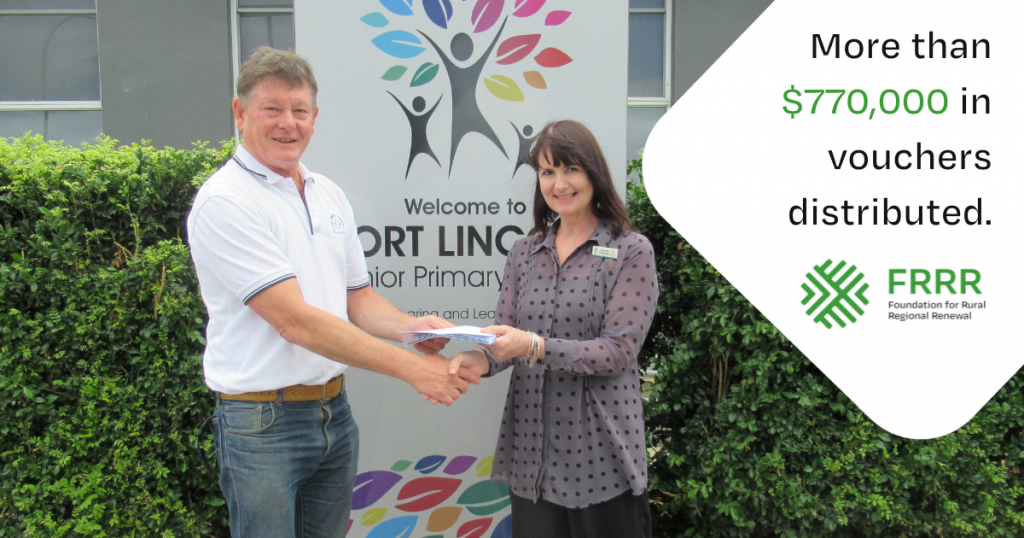
FRRR’s Back to School (BTS) program partners with community groups and Community Foundations to provide $50 gift vouchers to local families in need. The vouchers can be redeemed at select national retailers or local businesses for school essentials like uniforms, shoes, school bags or stationery.
Now in its 18th year, the BTS program has worked with community organisations in rural communities to distribute more than $10.7 million in BTS vouchers and help in excess of 216,000 students and their families get what they need to start the school year on a positive note. This includes families that have been impacted by natural disasters such as 2019-20 Black Summer Fires, flooding events, and the economic impact of the COVID pandemic.
Sarah Matthee, FRRR’s General Manager Partnerships & Services, said that the Back to School program continues to give a helping hand to rural families doing it tough.
“The unique aspect of the BTS program is that it taps into the deep understanding and the trusted relationships that local organisations have within their communities to ensure that these vouchers go to families most in need of the support.
“For many rural families, schooling and finances continue to be impacted by the pandemic. Although fifty dollars may not seem much, that little bit of extra help can go towards easing their worries in some small way,” Ms Matthee said.
In some communities, local Community Foundations also got behind the BTS program, with FRRR and its donors offering to match local donations, dollar for dollar. This year communities raised almost $63,000 in local fundraising across the country. Thanks to this community support, together with funds from the Origin Energy Foundation, FRRR was able to provide an extra 2,514 vouchers. One hundred percent of all donations to the program go directly into purchasing a $50 voucher to support a primary or secondary school student in need.
Eyre Peninsula Community Foundation, in South Australia, has worked with FRRR since 2009 to distribute BTS vouchers to local students and their families.
Garry Downey, Chair of Eyre Peninsula Community Foundation, said that the organisation sees huge need to continue to help families start their children off well-prepared for their learning years.
“The support of the FRRR program is truly valued, and their willingness to match locally donated funds creates an outstanding opportunity for Eyre Peninsula residents and businesses to boost the impact for local kids.”
You can see the full list of recipient organisations and the more than 100 remote, rural and regional communities that will benefit from these vouchers below.
BTS vouchers are funded through the support of FRRR donor partners, which include Portland House Foundation, Perpetual Foundation – Julian Flett Endowment, News Corp Australia, Fire Fight Australia Fund, Counter Point Community Services (Cycle Recycle), Bertalli Family Foundation, UNICEF Australia and Origin Energy Foundation, as well as private and individual donors.
For more information about the program, visit https://frrr.org.au/back-to-school/.
To support grant programs like this through FRRR, you can make a tax-deductible donation at frrr.org.au/giving/.
The full list of recipient organisations are below.
| Organisation | Location | |
|---|---|---|
| NORTHERN TERRITORY | ||
| Isolated Childrens Parents Association Northern Territory State Council | Mataranka, Daly River, New Castle Waters, Ti Tree | |
| NEW SOUTH WALES | ||
| Community Foundation for Albury Wodonga Region Ltd | Albury, Wodonga, Corowa, Howlong | |
| Edward Public School Parents & Citizens Association | Deniliquin | |
| First Steps Count Incorporated | Taree, Wingham, Old Bar , Nabiac | |
| Foundation Broken Hill Limited | Broken Hill, Wilcannia, Menindee | |
| Mumbulla Foundation | Bega Valley Shire | |
| The Southern Highlands Foundation | Bowral, Berrima, Mittagong, Moss Vale | |
| The Trustee for Northern Rivers Community Foundation | Alstonville, Ballina, Banora Point, Baryulgil | |
| Volunteering Coffs Harbour Incorporated | Coffs Harbour | |
| Walhallow Parents & Citizens Association | Walhallow | |
| QUEENSLAND | ||
| Biggenden Primary P&C Association | Biggenden | |
| Buderim Foundation Limited | Buderim, Mountain Creek, Sippy Downs, Kuluin | |
| Cowboys Charity Limited | Badu Island, Bamaga, Boigu Island, Chinchilla | |
| Peachester State School P&C Association | Peachester | |
| Tara & District Family Support Committee Incorporated | Tara, Chinchilla, Miles, Wandoan | |
| SOUTH AUSTRALIA | ||
| Eyre Peninsula Community Foundation Inc | Port Lincoln, Whyalla, Ceduna, Streaky Bay | |
| Foundation Barossa | Nuriootpa, Angaston, Tanunda, Kapunda | |
| Fleurieu Community Foundation Ltd | Strathalbyn, Goolwa, Middleton, Port Elliot | |
| Stand Like Stone Foundation Ltd | Allendale East, Beachport, Bordertown, Frances | |
| TASMANIA | ||
| George Town Neighbourhood House Inc | George Town | |
| Swansea Primary School Parents and Friends Association | Swansea | |
| VICTORIA | ||
| Ballarat Foundation United Way Inc | Blowhard, Ballan, Bungaree, Cape Clear | |
| Bass Coast Community Foundation Open Fund | Wonthaggi, Waterline Area, San Remo Area, Cowes Ventnor | |
| Donald Learning Group Inc | Donald, Marnoo | |
| Into Our Hands Community Foundation Limited | Wangaratta, Milawa, Oxley, Glenrowan, Moyhu, Whitfield | |
| South West Community Foundation | Warrnambool | |
| St Arnaud Neighbourhood House Inc | St Arnaud | |
| Kaniva College | Kaniva | |
| Mirboo North and District Community Foundation Inc | Mirboo North, Thorpdale, Yinnar, Boolarra | |
| The Trustee for Geelong Community Foundation | Greater Geelong, Winchelsea, Torquay, Meredith | |
| Tomorrow Today Education Foundation Ltd | Baddaginnie, Benalla, Broken Creek, Devenish | |
| Uniting (Victoria and Tasmania) Limited | Maffra, Wurruk, Longford, Seaspray | |
| Victorian Aboriginal Child Care Agency Co op Ltd | Morwell, Moe, Wangarratta, Wodonga | |

